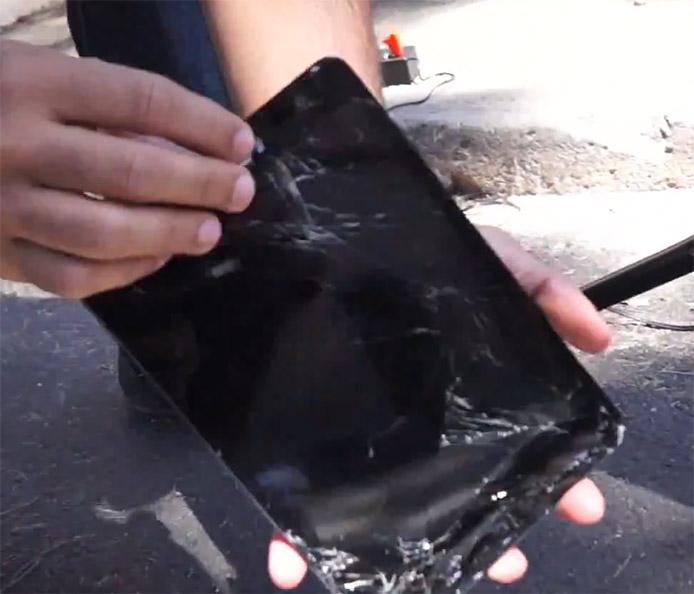An informal drop test performed by a third-party warranty firm found that despite having an extremely thin bezel, Apple's new iPad mini outperformed both Google's Nexus 7 and the third-generation iPad.
A total of three tests were performed by protection plan provider Square Trade, two using a specialized apparatus that dropped the three tablets from a height of four feet, and one where the devices were simply dunked in a container of water for ten seconds.
Unlike other tests, the iPad mini experiment utilized a machine to drop the tablets at the same time under similar conditions. In the two tests, the devices were dropped on their corners and front faceplate. The iPad mini fared the best out of the three for the corner drop, suffering only minor aesthetic damage with no screen cracks, while the edge of the Nexus 7's display showed some trauma and the full-size iPad suffered major cracks from the point of impact.
Up next was the face-down test, in which the Nexus saw slight fissures in its display glass, while the screens of the iPad mini and third-gen iPad were significantly fractured. The test did not attempt to turn the devices on after they were dropped.
Finally, the tablets were turned on and submerged in water for ten seconds, after which they were taken out and inspected. The iPad mini appeared to function normally, while the 9.7-inch iPad's home button malfunctioned and seemed to respond sluggishly to touch input. It is unclear how the Nexus performed as the device was quickly glossed over as it had started a reboot during the process, and was declared "unresponsive" by the tester.
Taking all three drops into consideration, the firm gave the nod to the iPad mini.
Disregarding the highly subjective results, the test series gives a fairly reasonable look at the tablets' survivability when dropped from height, though results undoubtedly differ in real world situations.

